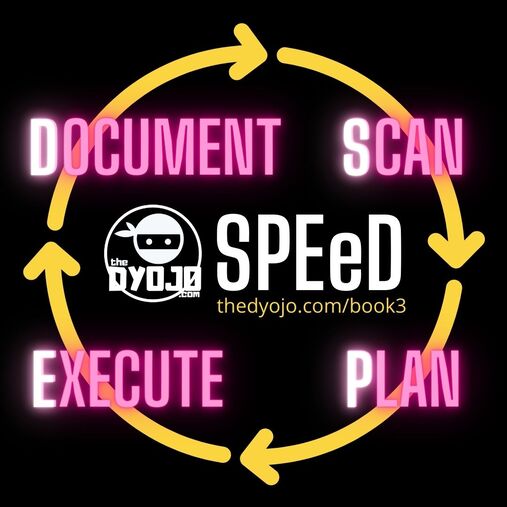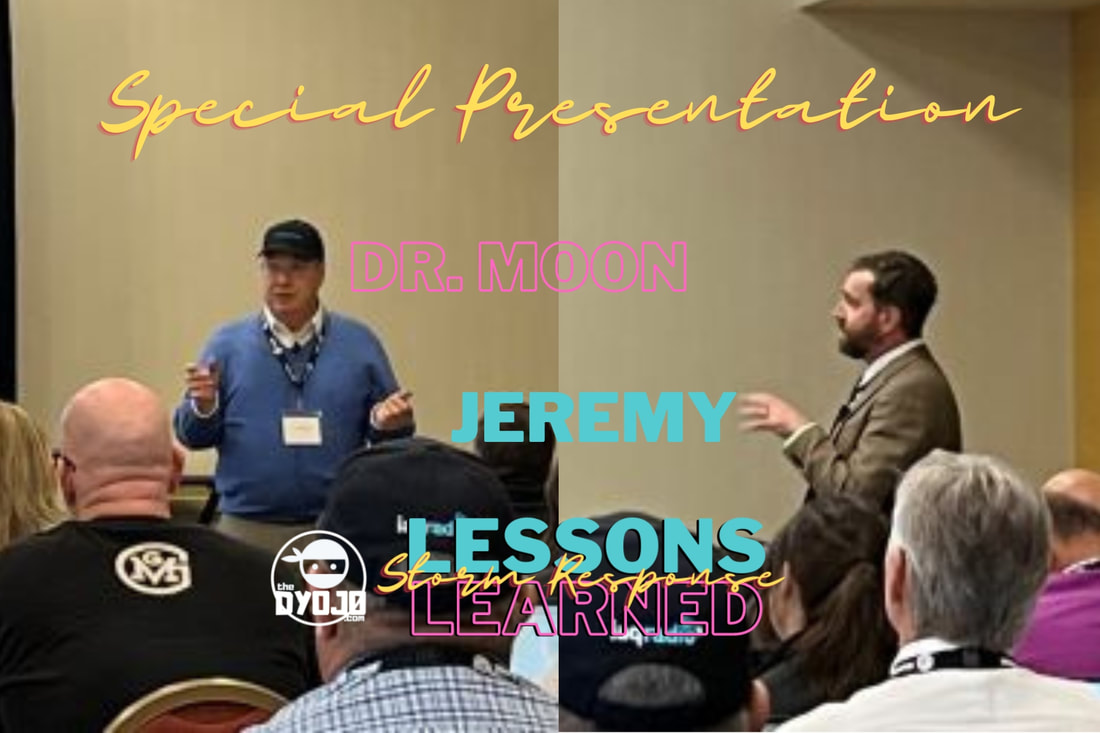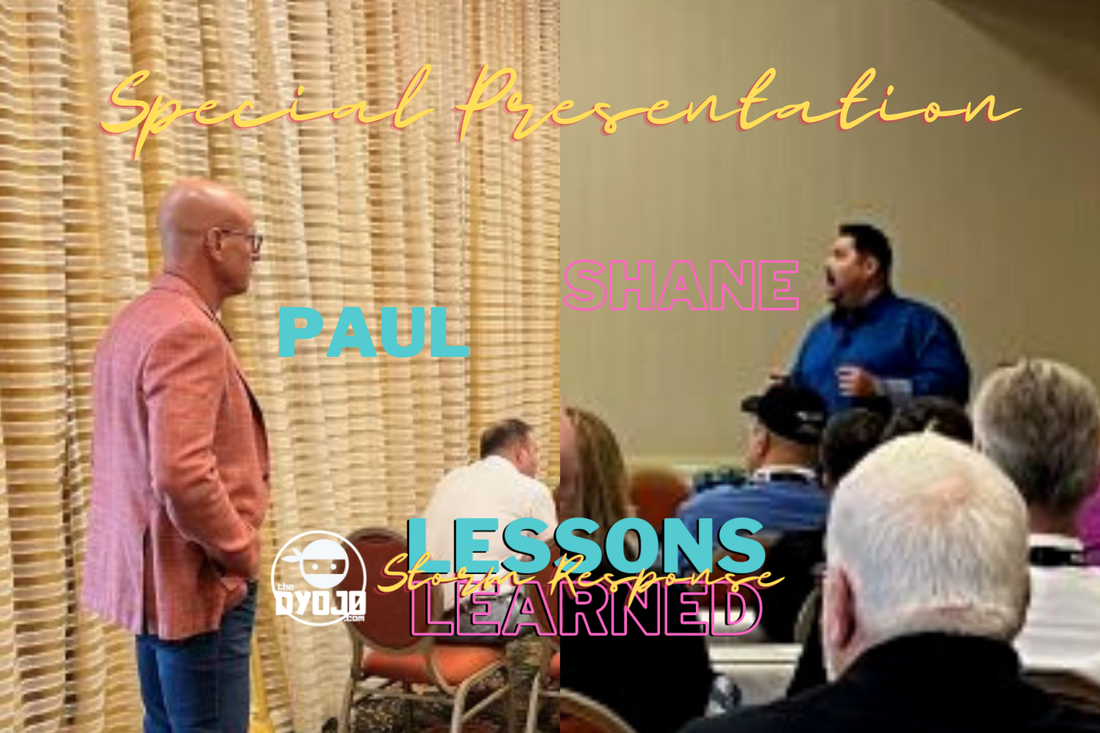|
Who is at fault if a "client" signs a contract (or work authorization) but they have no authority or ability to pay? It only takes getting left holding the bag once for a contractor to realize that there are two critical questions for every construction project:
On Episode 98 of The DYOJO Podcast, we wrap up a review of an insurance claim from Winter Storm Uri where the contract had to sue the customer, a school district, as they believed they were not paid correctly for their water damage emergency services. In this video, Bebo Crain and host Jon Isaacson discuss some of the hard lessons learned from being put in awkward positions with customers who either didn't understand the contract or misrepresented their authority to enter into one on behalf of the damaged property. As Bebo says, the simple the agreement, the better. Or even clearer, "The more understood, the better," for all parties involved. Listen to the rest of Episode 98 or read The DYOJO blog. The DYOJO Podcast - helping contractors shorten their DANG learning curve. Do you have the authority to sign my contract? If they say yeah, sure. Okay. Do you have the authority to initial or initiate payment? You can sign my work off, but your Are you going to pay? Are you the one that's going to pay? I think those are two really important questions. Two critical questions for every construction project RANSCRIPT: Jon Isaacson (DYOJO): Two really important questions you can sign my work off, but are you the one that's going to pay you a mentor to do do a podcast? I don't know about you Bebo, but I've done jobs like that, where you arrive, it's a big client, well known in the community, you know, like a school district, the teams jazzed to be doing something that's helping you really feel is a good cause we're working to get kids back into school, right? There's, there's nothing cooler than that. That's everybody's like, you know, I'm not excited to be working overtime, or overnight, or 24 hours or whatever. But because we're doing something good for our community, people feel a lot better about that. Bebo Crain (BC): During that Texas event, Texas was hit with a massive winter storm temperatures dropped below freezing for days, there was heavy emotion in the air, and you add that, then we don't experience stuff like that. And so we got hit really hard in Arkansas. And it was, I'm telling you, like in a situation like that, I mean, if we could help out, we're going to. I've dealt with larger entities like HOAs apartment complexes that have management shields in front of them, and things like that. And when you deal with an entity, or any property that you're gonna go on, I think that it's very important to understand who has control that property, who has control that property has control the property. Or better or better yet, who doesn't have control of that property, talk to call. For the event, or the money that's allocated for that property, it's important to know that they can, they could withhold that information from us and make it seem like a property management company or superintendent has the authority to appropriate $1.4 million, without even knowing it's gonna be 1.4 million in the beginning. I think it's very important for our contract contractor to have a contract and not just a contract, one that is clear with its terms, one that can be understood, like, you gotta be able to take your contract. And you got to be able to sit it down in front of three or four people after the fact that all this stuff's happened, right? Whether after you've done the considerations of the work for the money, and you've got to sit there and you've got to be able to explain it what happened, you got to demonstrate what happens and what's going on. It's got to be agreed upon, like, I agree to do this for this, you know, if something's going on, the simpler, the better. Or the more understood, the better. DYOJO: Just asking somebody, do you have the authority to sign my contract? If they say yeah, sure. Okay. Do you have the authority to initial or initiate payment? You can sign my work off, but your Are you going to pay? Are you the one that's going to pay? I think those are two really important questions. The Full Discussion, Ep 98
0 Comments
Project management is all about managing the project to completion, according to scope, on time, and on budget. The scope is based upon estimated time and material costs to complete the work. You can begin to master these basics, even as a technician or carpenter, by simply setting daily objectives for yourself. If you know what you will be doing tomorrow, you can set out your materials the night before, have a plan for how you will be efficient throughout the day, and document for your supervisor that you have met or exceeded the benchmarks that you set for yourself. For example, when you arrive on a project you can use the following acronym to develop your work SPEeD; this stands for:
If you aspire to a supervisory or leadership role, you can use this sequence to first lead by example. When co-workers and supervisors notice that you are bringing order to chaos, you will create opportunities to input on the daily goals for your team. When you can help yourself and others clearly set and consistently achieve goals you will become an invaluable asset for any workplace. Use The DYOJO Recipe for Production SPEeD to help you elevate your performance as well as everyone around you. Setting Clear Goals to Accomplish a TaskIf you know the goal, you can "reverse engineer" what you need to do in order to achieve this intended outcome. For example, if the team needs to remove all of the drywall in two rooms within an eight-hour shift, a simple goal would be to remove one wall per hour (eight walls total in eight hours). If it's lunch time and your team only has two walls down, either there was an unknown factor decreasing production efficiency or the team needs to light a fire under their butts. The more you practice setting goals like this and achieving them, the better you will be at this process of project management. This kind of success is addictive and contagious in that team members will respond positively to the sense of accomplishment and managers will be asking how they can replicate your team's ability to achieve your production goals. Imagine how powerful it would be for you and your team to be able to say, "This is what we are going to accomplish today and be able to hit your mark consistently." If you document your goals and how consistently you have met or beat them, this data will be helpful in showing value to your supervisors. If you want to become a site foreman, shift supervisor, superintendent, or a project manager, this process will help you set and achieve goals as you manager larger teams. The DYOJO Recipe for Production SPEeDSCAN your worksite to understand what needs to be done, how to do it safely, and how you can develop a PLAN that optimizes your resources. As a technician, if you have a detailed work order that your supervisor provides you with the night before so that you can prepare for the following day, you can create the framework for your PLAN before you ever set foot on the worksite. If you can master SPEeD from where you are, you will be proactive in pursuing your goals, and you will also have a solid foundation for leading your teams as a project manager. Use The DYOJO Recipe for Production SPEeD to help you set and achieve your goals. Once you have mastered these abilities you will have all of your past experience to share and equip the teams you manage with the same resources for success. More Resources from The DYOJO
Considering chasing storms or pursuing catastrophe work? Feast upon this snippet from The DYOJO Podcast Episode 98. In this clip, Jim Thompson shares his perspective on how to set yourself up for success on a large loss. "You can lose your company on a large loss. You do a three or four-thousand-dollar loss and then you sacrifice your credit line, you borrow money from your friends and family, you hock your truck, or you do anything to get that loss done, but then you don't do it right. Not that you don't do it right technically but politically. Then the adjuster plays the 'let's make a deal' and doesn't want to pay until 90 days later. It's a risky business. But you can protect that risk by doing things the right way." Thursdays are for The DYOJO Podcast - Helping contractors shorten their DANG learning curve.
The Science Panel for the Lessons Learned from Storm Response and Hurricane Recovery workshop brought Ralph E. Moon, PhD and Jeremy D. Beagle, CIH to center stage.
Ralph shared his wealth of knowledge in being called to projects for cause and origin. When he is conducting a claims inspection, he seeks to allow the conditions of the structure to speak for themselves. Jeremy followed up with a practical discussion of some of the ways third-party consultants can miss the mark by not approaching the structure with a scientific process that leads them to make evidence-based conclusions. This process includes asking, “Why am I doing this?” as well as, “Is this accomplishing what it is intended?” Ralph and Jeremy worked together in a supervisory capacity. We sat together during one of the FOP (Friends of G. Pete Consigli, CR, WLS) Dinners and I had the joy of hearing more about their mentorship relationship. Ralph discussed at the workshop, echoing what Joseph Lstiburek also shared during the Andrew Ask Building Science Symposium, that seasoned professional must do their part to pass the torch to the next generation. Ralph stated that this process is about empowering young professionals to learn to do things the right way as they gain knowledge and independence in their processes. Paul Donald (Encircle) and Shane Bailey (BSA) made special technology and creative solutions presentations for our Lessons Learned from Storm Response and Hurricane Recovery workshop.
Shane Bailey presented creative ideas for helping property owners and managers get ahead of disasters by mapping out their structure as well as their response plan. Shane reminded the audience that the building does not have a contingency plan. Paul Donald shared data they gathered from members of the Encircle network who responded to Hurricane Ian. He made the comment that contractors should consider the third-party reviewer or the adjuster as their accountant. Thank you Encircle and Building Science Authority for sponsoring this event. Here are a few brief notes in recap of my experience at the Andrew Ask Building Science Symposium 2023 The main attraction for the Andrew Ask Building Science Symposium was the fourmember panel titled The Pioneers of Building Science. Each of these men has left an indelible imprint in the building sciences as well as in each other's lives. Their enduring relationship is a testament to the power of collaboration with other professionals who have similar zeal. If I remember correctly, John Tooley shared the presiding vision for their career paths and the event, the question, “What is truth.” While many admire their success, it was refreshing to hear that none of them were overnight success stories. The path to the “top” is paved with trials. Each member discussed the adversity that they faced in breaking into their industry, developing their skills, and building their businesses. Joe Lstiburek shared that he was broke, black-listed, and living in his mother’s basement. Lstiburek was the primary speaker for the two-day event. Equal to his ability to comprehend the many elements of building sciences is his ability to distill these concepts into useful information. Attendees of the symposium walked away with a wealth of applicable knowledge. Organizers of the event brought the pioneers as well as many emerging voices. I particularly enjoyed a presentation from Kimberly Llewellyn and Bryan Orr titled Chasing HVAC Unicorns. The information they shared was applicable to every discipline within the skilled trades. Kimberly opened with a quote by Vitruvius, “This knowledge is the child of practice and theory,” going on to explain how both are necessary to develop as a professional. Bryan clarified that rather than making things more complex, aspiring professionals need to master the basics and collaborate with other professionals to innovate creative solutions. He shared a quote, “When we get lost in the complex we fail to be masters of the obvious.”
|
Words
The DYOJO - helping contractors shorten Archives
June 2024
Categories
All
EstimatingMarketingInsurance ClaimsLeadership |
|
| |||||||








 RSS Feed
RSS Feed
